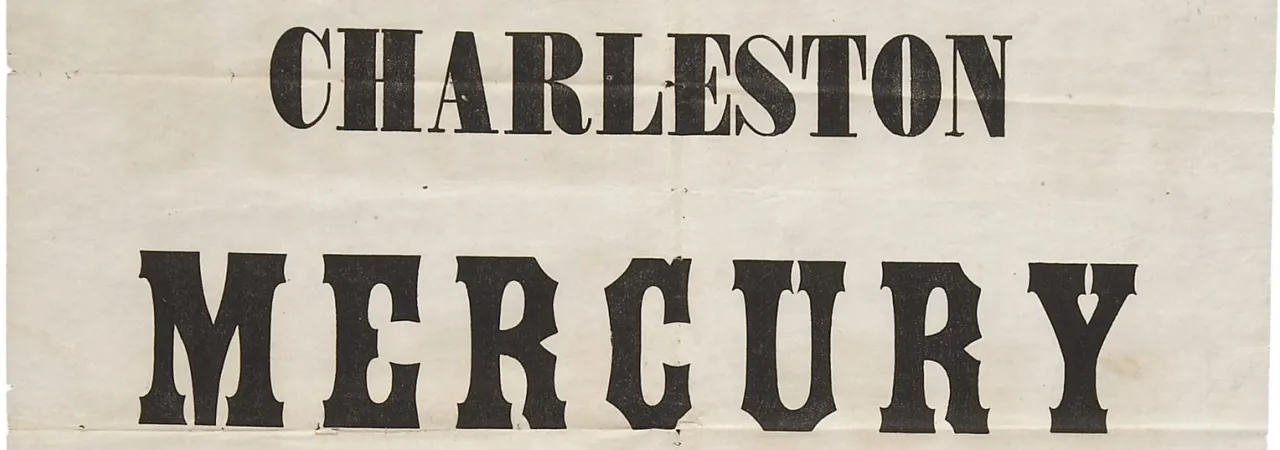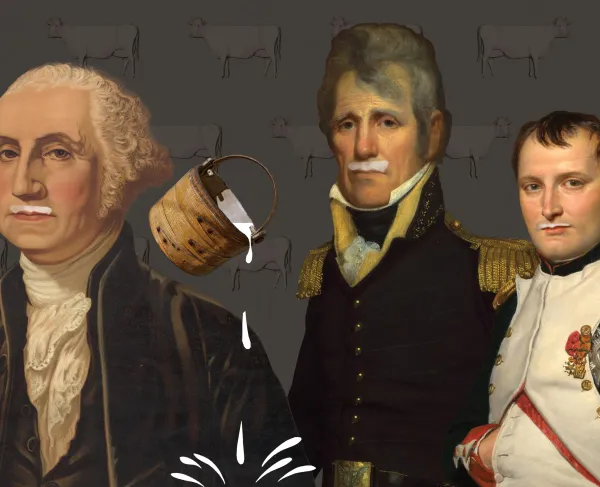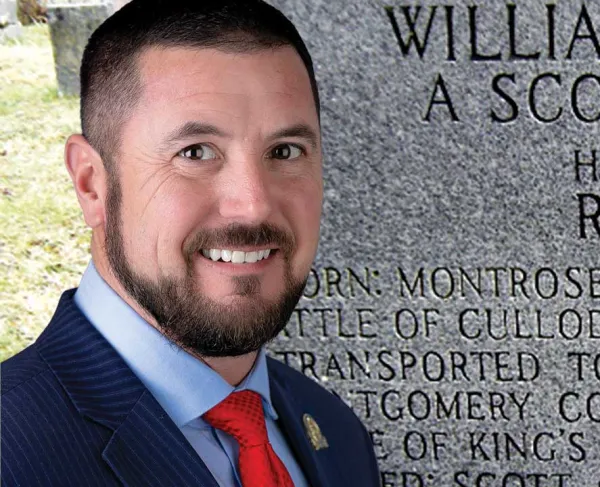
This 19th Century newspaper started in 1823 under the name the Charleston Mercury and Morning Advertiser. Two years later, Henry L. Pinckney purchased the publication and began turning it into a platform for political opinions. Pickney served as the sole editor for ten years and shortened the name to the Charleston Mercury. An influential figure in South Carolina state politics, he served several terms as Speaker of the House for the state’s legislature. Politically, Pickney was a pro-slavery and supported John C. Calhoun and the concept of nullification which was a disunion movement in the 1830s and part of the political ideology leading to the American Civil War.
Reflecting the political views of its founder and first editor, the Charleston Mercury was a pro-south newspaper with regular articles about slavery and states’ rights. Many of its writers wrote about the growing abolitionist movement and how it threatened the southern way of life.
Though the Mercury heavily focused on writing pro-slavery and states’ rights columns, it was also a place where southerners added their own opinions, requests, and notices. For example, in the December 2, 1853 edition of the paper, an anonymous article written by “A Southern Matron” advocated to save George Washington’s Mount Vernon. Ann Pamela Cunningham of South Carolina had been motivated to write and publish the article after her mother Louisa sailed passed the estate and was appalled by its appearance. Ann challenged the women of the south and later the whole country to help preserve the property. She formed the Mount Vernon Ladies’ Association in 1853, and by 1858 had raised $200,000 to buy the estate. The Association protects and preserves the home of George Washington to this day.
As the Civil War loomed in the 1850s, the newspaper saw more anti-north publications. One week after John Brown’s Raid on Harper’s Ferry, an excerpt was printed on the front page by Gerrit Smith. In it, he wrote that it is too late for slavery to be voted down in government and the only course of action would be a war.
During the late 1850s, Robert B. Rhett, a staunch secessionist, owned the newspaper and worked as the editor. As early as 1844, he had called for South Carolina to secede from the Union. When he resigned his U.S. Senate seat in 1852, he dedicated the rest of his time to the Charleston Mercury where he continued to express his fiery secessionist views. Under Rhett’s direction, the newspaper spent little time on investigation, context, or nuance of reporting. He preferred to give quick details and move quickly to the call for action which increasingly pushed for secession. Unsurprisingly, Rhett was also one of the 169 South Carolinians who unanimously voted to secede from the Union on December 20, 1860.
One of the most famous pages that the Mercury ever printed announced South Carolina’s Ordinance of Secession. Large, bold type proclaimed, “THE UNION IS DISSOLVED!” and has been used in history books, documentaries, and other historic and educational resources for decades.
The Charleston Mercury continued publishing through the Civil War. Since its decades-long call to action had been accomplished, the writers found targets for criticism and new calls to action. The articles offered heavy criticism toward President Jefferson Davis and other Confederate political and military leaders. The criticism contrasted with Charleston’s other major newspaper—the Charleston Courier—which strongly supported Davis.
The Mercury continued publication until the Union Army occupied Charleston on February 18, 1865. The publication resumed in November 1866, but the paper permanently closed in 1868.
For 42 years, this Charleston newspaper offered political views and an outlet for community thought and news. The archived pages of the publication give historians a chance to explore views and happenings that would have been familiar to the newspaper's readers in the antebellum and war years.
Further Reading:
- Voices in the Storm: Confederate Rhetoric, 1861-1865 By: Karen E. Fritz
- Words of War: The Civil War Battle Reportage of the New York Times and the Charleston Mercury and What the Historians Say really Happened By: Don Bracken
- "Charleston Mercury" South Carolina Encyclopedia.
- "Henry Laurens Pickney" South Carolina Encyclopedia.
- "Robert Barnwell Rhett" South Carolina Encyclopedia.


